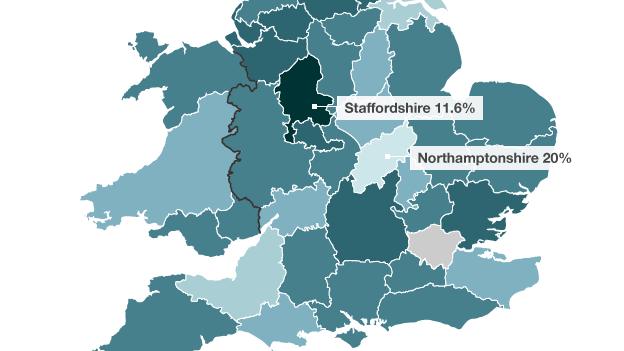Q&A: Police and crime commissioners
- Published
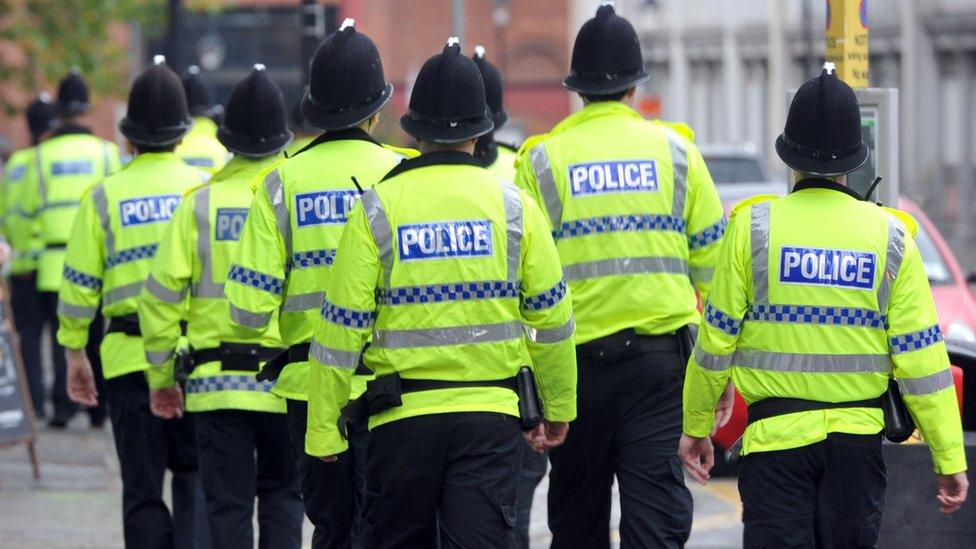
Commissioners hold the police to account - rather than running local police forces
Elections for police and crime commissioners will take place across most of England and Wales on 5 May. Here is a guide to what PCCs do and how the system, introduced in 2012, works.

What are police and crime commissioners?
PCCs are elected representatives who work to ensure police forces in England and Wales are running effectively. They replaced police authorities in 2012 and were intended to bring a public voice to policing.
The government insists PCCs are not there to run local police forces but to hold them to account and respond to the needs of the public.
There is no PCC in London because the mayor is responsible for policing.

Who are they?
In the first PCC elections held in November 2012, 192 candidates stood for the 41 posts covering England and Wales.
Sixteen Conservative PCCs were elected, 13 from Labour and 12 Independents. Among the successful independent candidates were eight former police officers, one of Wales' most senior barristers, and an ex-pilot. Six women were elected (from 35 who stood as candidates) and 35 men.
In this year's election on 5 May there are 40 votes being held - because Greater Manchester is not holding an election. The region is set to vote for the new post of elected mayor in 2017 and the powers and responsibilities of the PCC will fall to the mayor. Since last May PCC Tony Lloyd, who was elected in 2012, has held the post of interim mayor.
This time there are 188 candidates standing. Labour and the Conservatives are fielding candidates in each area, with UKIP putting forward 34 candidates and the Liberal Democrats 30. Of those elected in 2012, 26 are standing again, as are two successful candidates from by-elections held in 2014.

What do they do?
PCCs' responsibilities include:
Appointing chief constables of forces and dismissing them when necessary
Holding the chief constable to account for the performance of a force's officers and staff
Providing a link between the police and communities, which includes consulting local people, the council and other organisations
Overseeing community safety and the reduction of crime, and ensuring value for money in policing
Setting out a force's strategy and policing priorities through the Police and Crime Plan
Setting out the force budgets - between them the commissioners are responsible for about £11bn a year of spending on police in England and Wales
Reporting annually on progress

What does their role not cover?
Police and crime commissioners cannot tell the police how to do their job - despite having some control over the direction of a force. The operational independence of the police is protected by legislation.

Is anything changing?
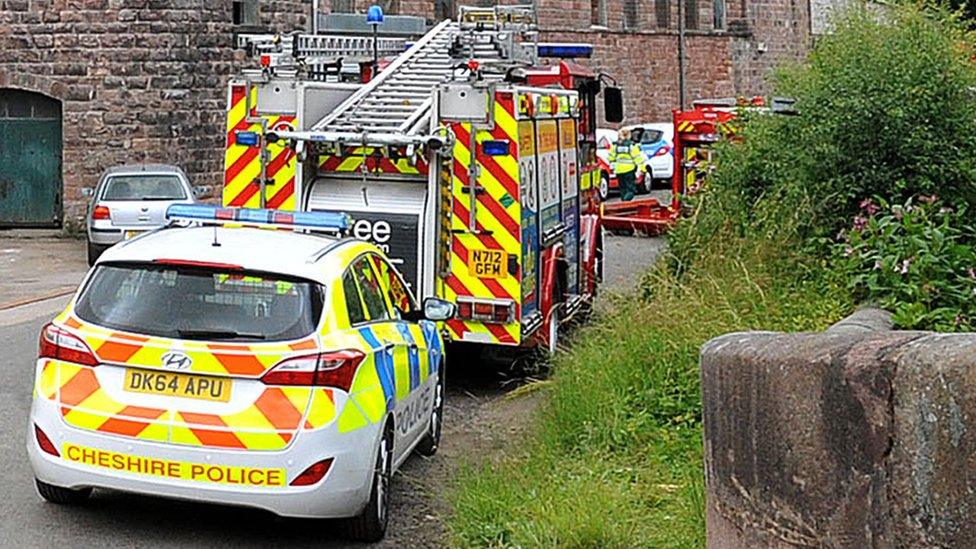
The government has proposed that some PCCs could take on responsibility for fire services
New measures proposed in the Policing and Crime Bill, external, which is currently passing through Parliament, would enable PCCs to take on responsibility for fire and rescue services. The Home Office said it wanted to encourage more "efficiency and effectiveness" but the Fire Brigades Union called the idea "dangerous" and a "half-baked suggestion" and the Local Government Association said it saw no "pressing need" for the change.

How are PCCs chosen?
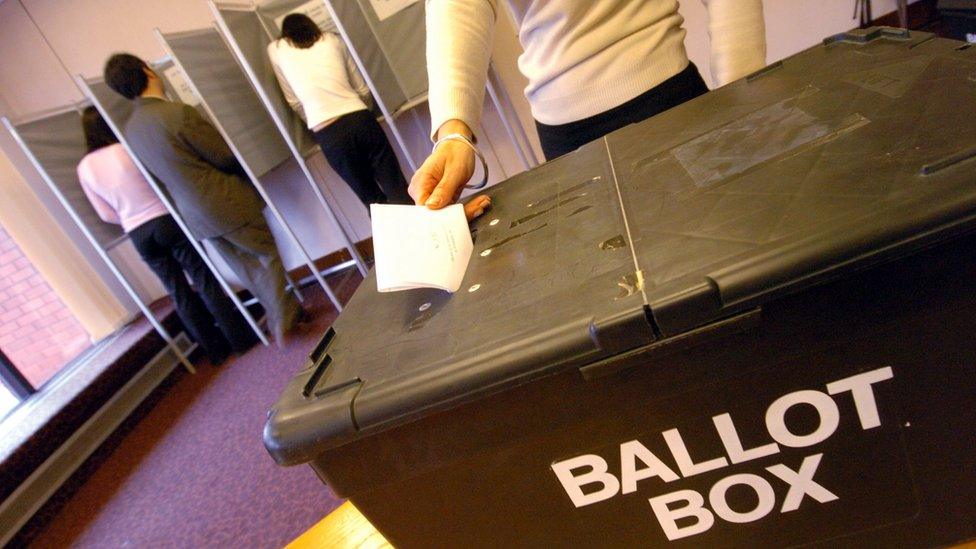
The average turnout in the 2012 PCC elections was below 15% and the figure dropped to 10.4% for a by-election in the West Midlands caused by the death of the PCC in 2014
Public elections for the first police and crime commissioners took place on 15 November 2012 in 41 police force areas across England and Wales, not including London. The elections - 37 in England and four in Wales - were described as the biggest shake-up of policing for almost 50 years but the turnout was the lowest in peacetime Britain. One polling station in Newport, Gwent, was visited by no voters at all.
Fewer than 15% of voters turned out in the 41 police areas electing a PCC, prompting the Electoral Commission to hold a review into how the polls were conducted. The inquiry found 80% of voters felt they did not have enough information to make an informed choice. The commission's chairwoman Jenny Watson said: "The government took a number of decisions about how to run these elections that we did not agree with."
All registered voters are entitled to take part in the elections. The supplementary vote system is used in all force areas where more than two candidates stand, with voters marking the ballot paper with their first and second choice of candidate. In the 2016 elections there are at least three candidates standing for each post.
A PCC's term of office is four years - there had originally been plans to enforce a maximum of two terms in office, but that limit was scrapped while the bill establishing PCCs made its way through Parliament.

How did the idea come about?
The idea of giving local people more of a say in how the police in their area are run had been championed for years by some Conservatives as a way of boosting local democracy - but it only became party policy at the 2010 general election.
The coalition agreement, external published after the May 2010 election contained a pledge to make the police "more accountable through oversight by a directly elected individual". The proposal was fleshed out in the white paper "Policing in the 21st Century, external" and enacted in the Police Reform and Social Responsibility Act, external, which became law in 2011.

Why isn't London included - or Manchester?
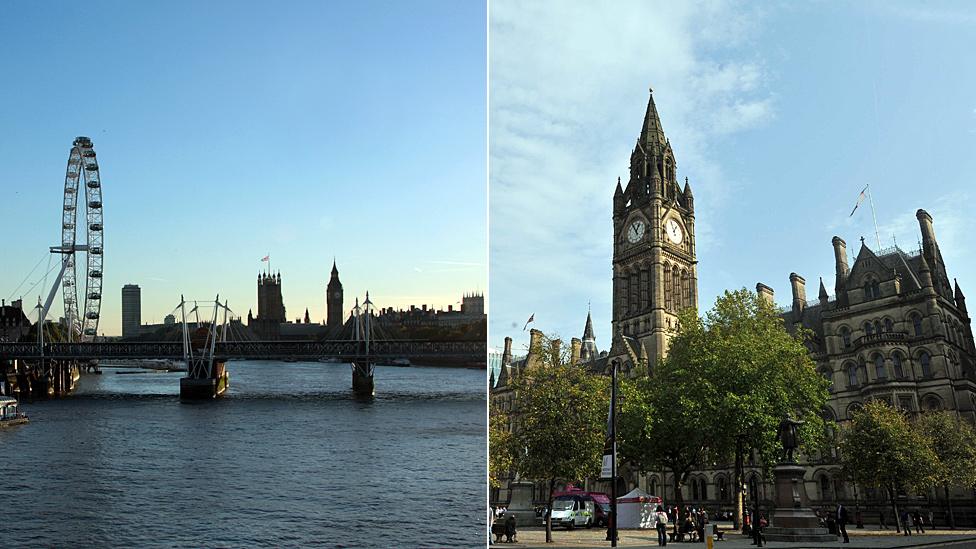
London has a directly elected mayor, who acts as the police and crime commissioner for the Metropolitan police area. London's police and crime panel is formed from a committee of elected London Assembly members. The commissioner of the Metropolitan Police continues to be a Royal appointment on the advice of the home secretary.
In 2014 Chancellor George Osborne announced plans for an elected mayor for Greater Manchester as part of a project to hand more devolved power to the north.
Manchester's PCC Tony Lloyd became the city's interim mayor in May 2015, retaining the PCC responsibilities when he transferred to his new role. Mancunians will vote for an elected mayor for the first time in 2017 and, as in London, the mayor will continue to oversee policing.

Is the post of a PCC political?
PCCs are required to swear an oath of impartiality when they are elected to office. This echoes the commitment police officers make to serve every member of the public impartially. Before the introduction of PCCs, the government promised the way investigations were carried out would not become political.

Who holds PCCs to account?
PCCs have to answer to the public - the government has said their performance "should be judged solely by the electorate" - and more than two-thirds of the commissioners are asking voters to re-elect them in 2016.
And people can complain to the Independent Police Complaints Commission (IPCC) if they think their PCC has broken the law.
In addition to this, Police and Crime Panels were set up in each force area to scrutinise and challenge the actions and decisions of each PCC. A panel may require the attendance of the PCC, has the power to suspend them from office because of a criminal offence, or exercise a veto over a proposed candidate for chief constable.
But in July 2013, less than a year into the new system, the Home Affairs Select Committee said it seemed "very easy" for a PCC to remove a chief constable for "insubstantial" reasons and advised police and crime panels should be more vigorous in analysing contentious decisions by PCCs, such as the sacking of a chief constable.

Who sits on a Police and Crime Panel?
In England, panels are mainly made up of representatives from each local authority in a police force area. In Wales, they are free-standing public bodies, set up and maintained by the secretary of state, rather than local authority committees.

How much do PCCs cost?

When the role was introduced, ministers insisted the cost of PCCs and police and crime panels must be no greater than the abolished police authorities.
In 2013, BBC research revealed the salaries of the majority of the PCCs were between £70,000 and £85,000, although the commissioners overseeing the three major forces of Greater Manchester, West Yorkshire and West Midlands were each receiving £100,000. It was also calculated that PCCs across England and Wales had employed at least 449 people in the six months after their introduction.
Salaries are recommended by the Senior Salaries Review Body, which advises on the remuneration of those in public office, and approved by the home secretary.

Have there been any problems?
During the first year PCCs were in office, there were four investigations carried out by the IPCC, as well as investigations by the CPS into expenses claims. And MPs on the Home Affairs Committee warned ministers were failing to properly monitor the salaries and standards of PCCs.
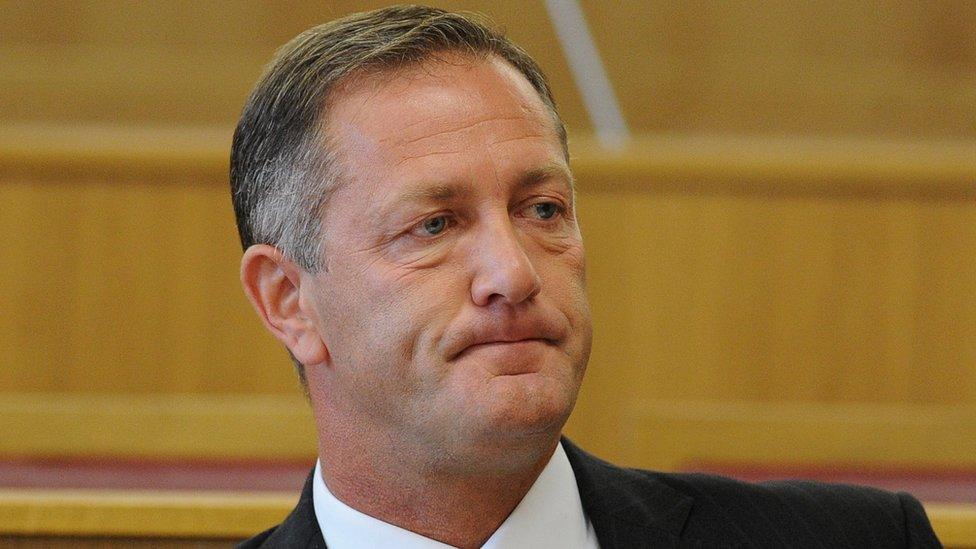
Shaun Wright stood down as South Yorkshire PCC amid the Rotherham child sex abuse scandal
In 2014, South Yorkshire's PCC Shaun Wright resigned over the Rotherham child abuse scandal. He had faced demands to step down in the wake of a report that found at least 1,400 children were abused in the town from 1997 to 2013. Mr Wright, who had been the head of children's services in Rotherham between 2005 and 2010, eventually said he was stepping down as PCC to ensure the "important issues" outlined in the report could be discussed and considered "without distraction".
Home Secretary Theresa May had called for Mr Wright to stand down and - in the few days before he did so - the controversy prompted then Deputy Prime Minister and Lib Dem leader Nick Clegg, whose party helped pass the legislation that created PCCs, to describe the role as a "discredited experiment" and say PCCs should be abolished.
Just three months after being elected Lincolnshire PCC Alan Hardwick suspended his temporary chief constable Neil Rhodes over an employment dispute. But a judicial review into the suspension ruled in favour of Mr Rhodes, with a judge calling the suspension "irrational and perverse", and he was reinstated. The row also saw the chairman of the crime panel stand down. Speaking at the time, Mr Hardwick, who is not standing for re-election, said he accepted the judge's decision and added: "The rules governing PCCs don't really envisage this sort of thing, there is more guidance needed."
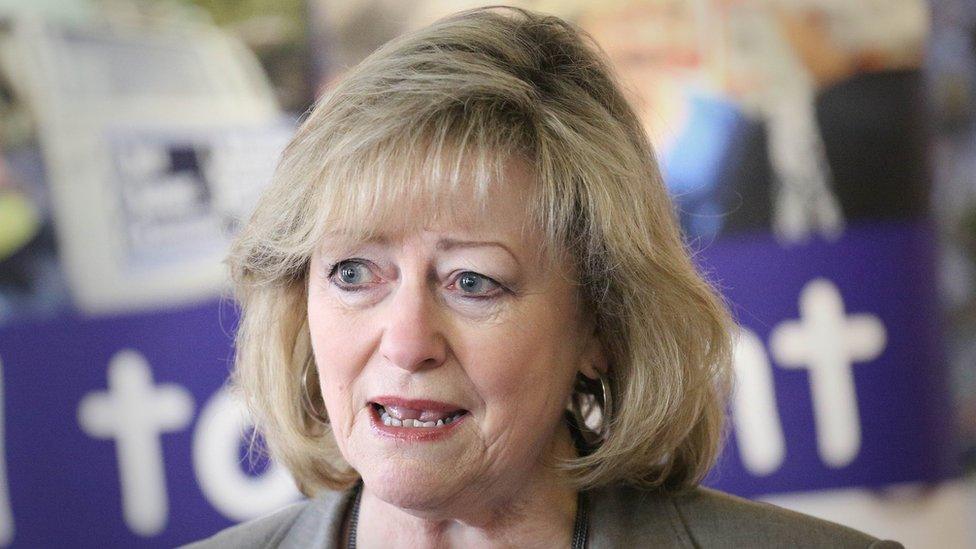
Kent PCC Ann Barnes was criticised for appearing in a Chanel 4 documentary about her job
Kent PCC Ann Barnes, an Independent, has been a controversial figure during her tenure and announced in March she would not be standing for re-election. A report last year found she may not have been properly insured when she was in a car crash and she was criticised for taking part in a documentary and for her appointments of youth commissioners. In a statement on her website, external when she said she would not be standing in the 2016 election, Ms Barnes said the people of Kent had been getting a better service and added: "I am content that I have delivered what I said I would."
Cumbria's PCC, Richard Rhodes, apologised for using a chauffeur-driven car that cost £700 of taxpayers' money for just two trips and admitted he had failed to check how much it would cost. The former head teacher paid the money back and said at the time he understood the public concern over the case. Cumbria Police arrested three people in connection with leaking the information but no charges were brought. Mr Rhodes is not standing for re-election.
When he was just over six months into the role Bob Jones, the West Midlands PCC, said PCCs should be scrapped and replaced with something more efficient and less party political. Mr Jones died in July 2014 aged 59 and a by-election was held to replace him the following month. The turnout for the by-election was just 10.4% - lower than the 12% in the West Midlands in 2012 - and the cost of the poll was estimated at £3.7m, nearly £20 for every vote cast.

What do supporters say?
Supporters argue that elected commissioners make policing more accountable and responsive to local needs because, for example, they consult with victims of crime when setting policing priorities. They also say PCCs bring valuable outside experience to forces.
Home secretary Theresa May, who introduced the role, says PCCs "have engaged with the public, external over the past three-and-a-half years in ways that police authorities never did or could".

What do critics say?
In 2012 opponents warned PCCs could lead to the politicisation of the police, with commissioners favouring headline-grabbing initiatives. They also feared commissioners could interfere with the running of police forces.
Critics have also questioned whether PCCs have real legitimacy following the low turnout of just over 15% in the 2012 elections.

What was the previous system?
Police authorities, first established in 1964 to hold chief constables to account, had oversight of the police before PCCs. They were made up of local councillors and independent, appointed members. But the coalition government concluded police authorities were "invisible" and needed replacing with elected commissioners and police and crime panels.
- Published11 September 2015
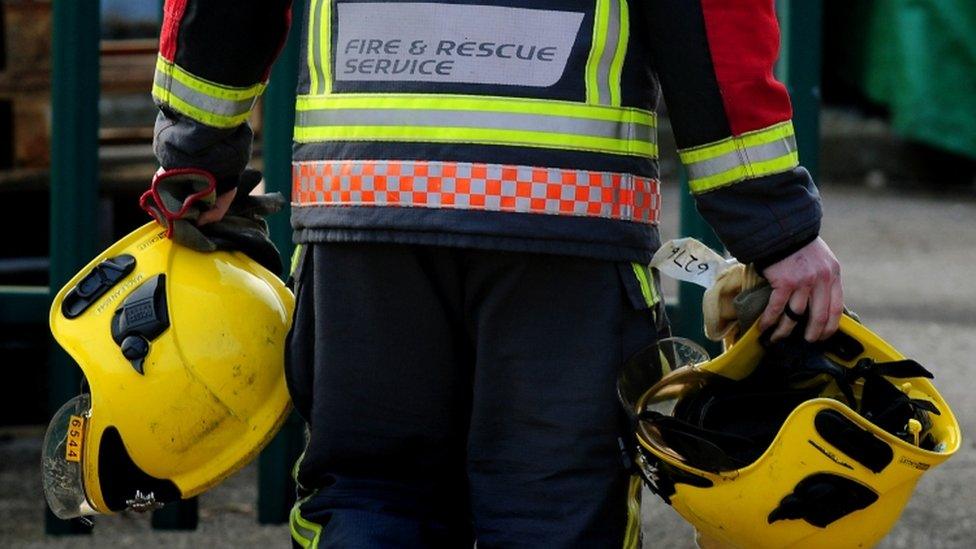
- Published12 September 2014
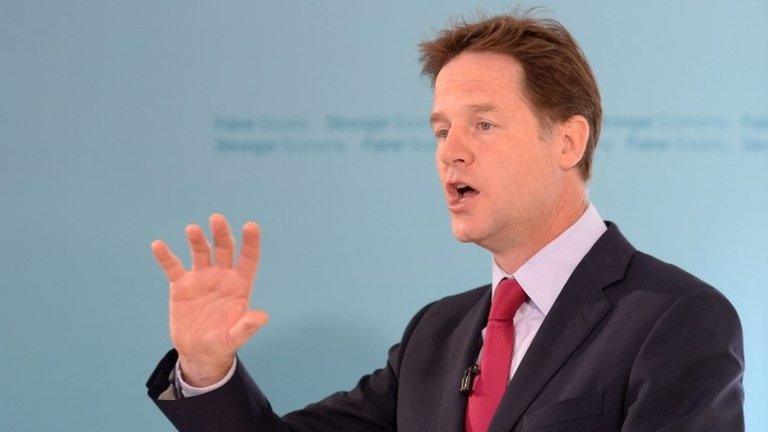
- Published20 April 2016
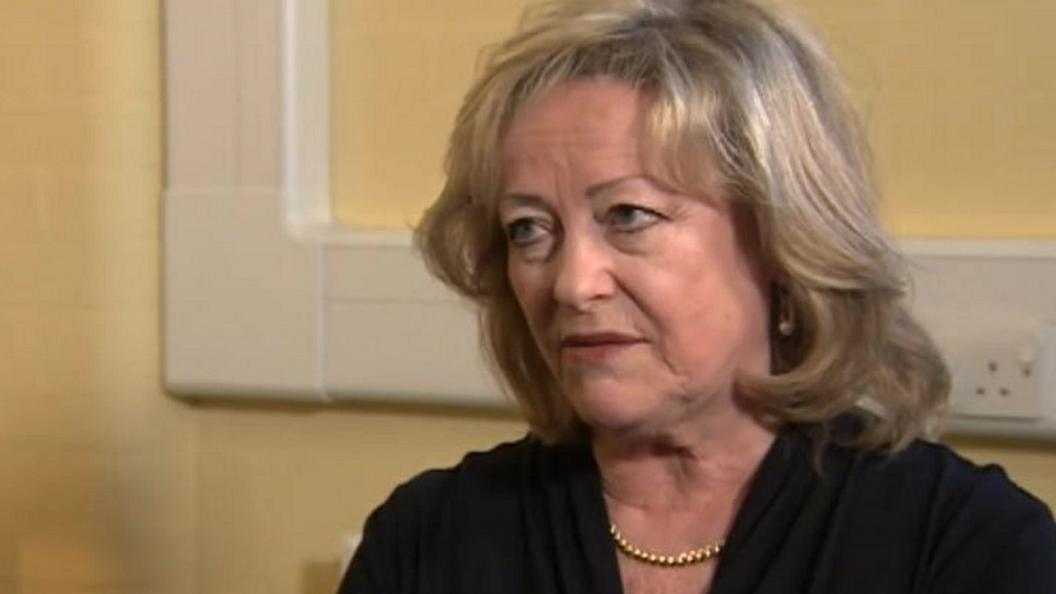
- Published29 May 2015
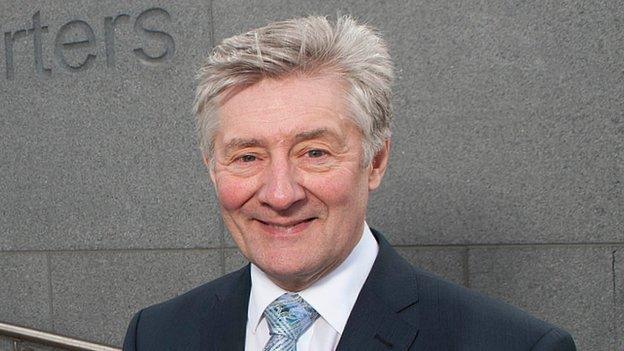
- Published16 September 2014
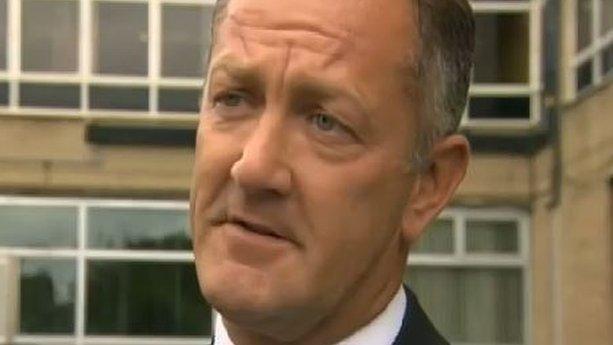
- Published20 July 2013
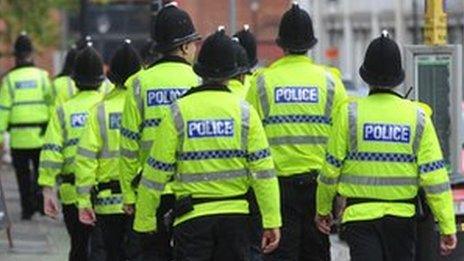
- Published6 June 2013
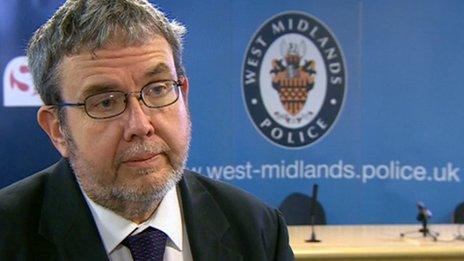
- Published22 May 2013
- Published19 March 2013
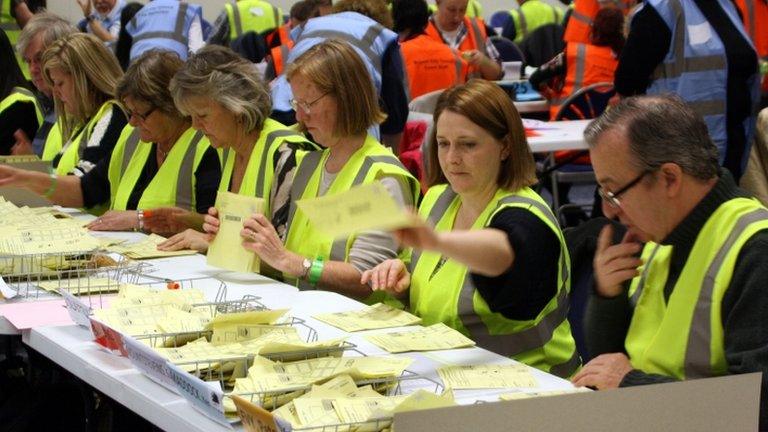
- Published17 November 2012
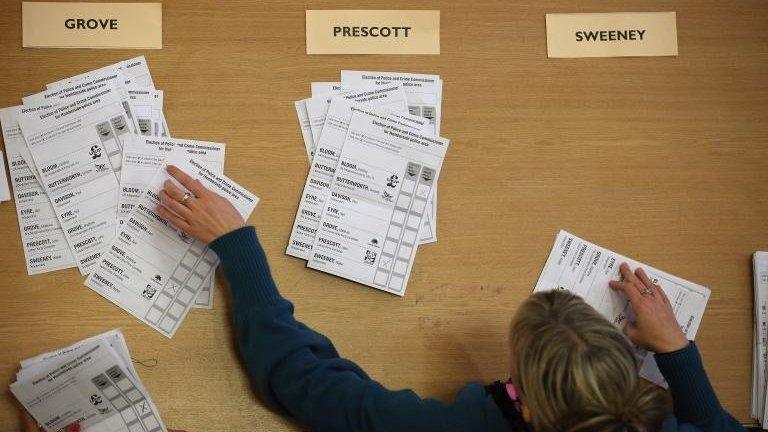
- Published16 November 2012
- Published19 November 2012
